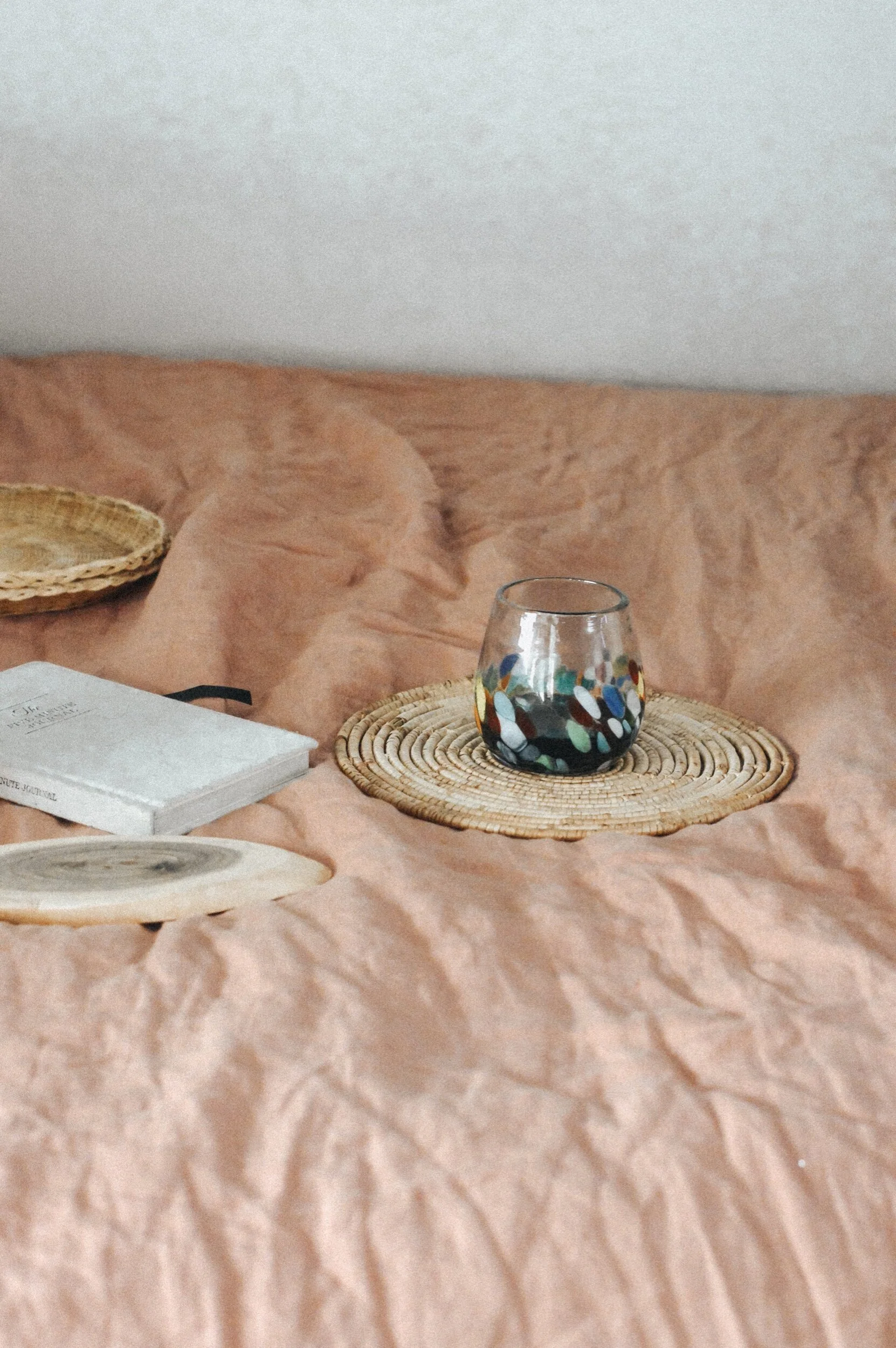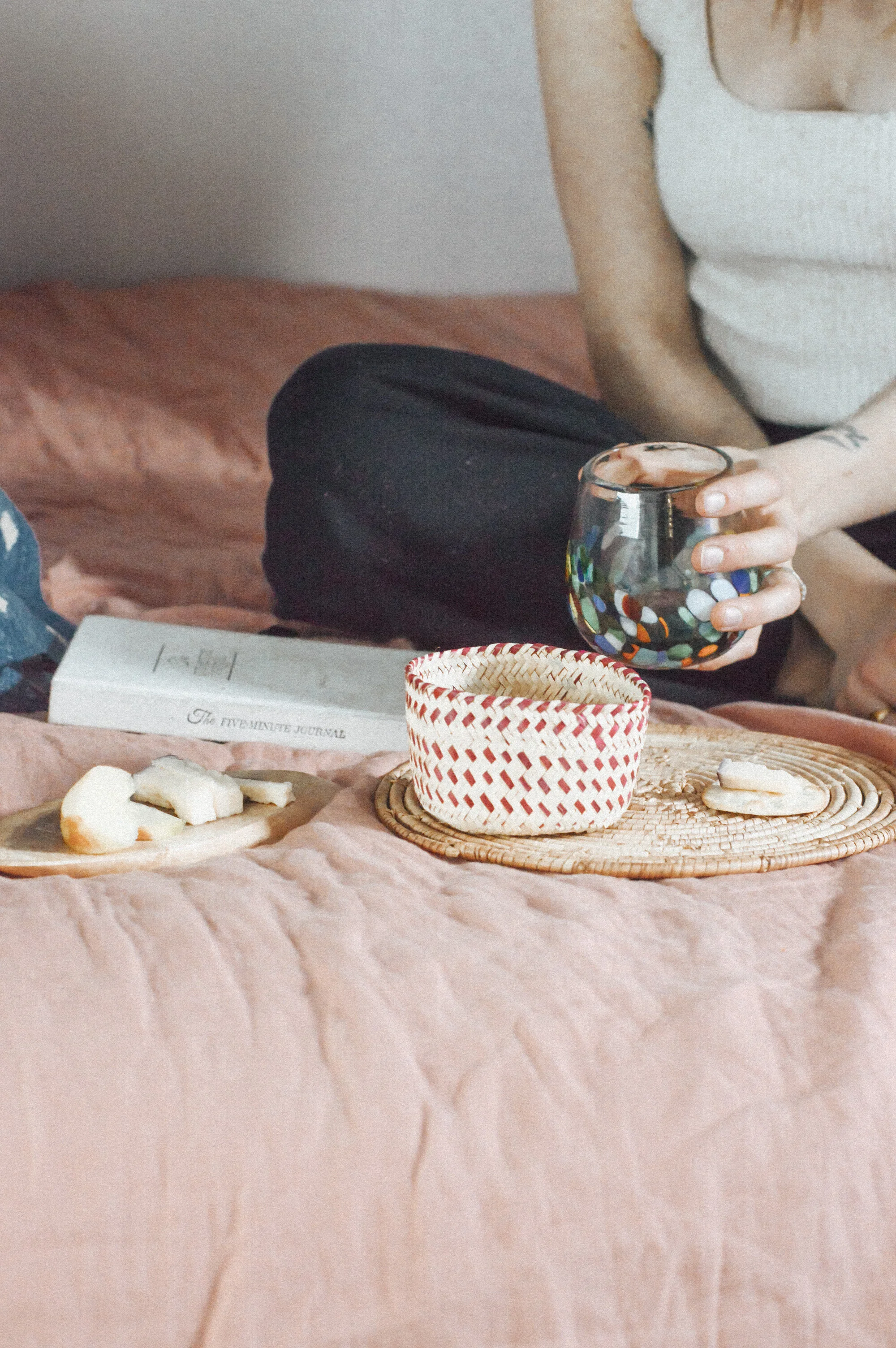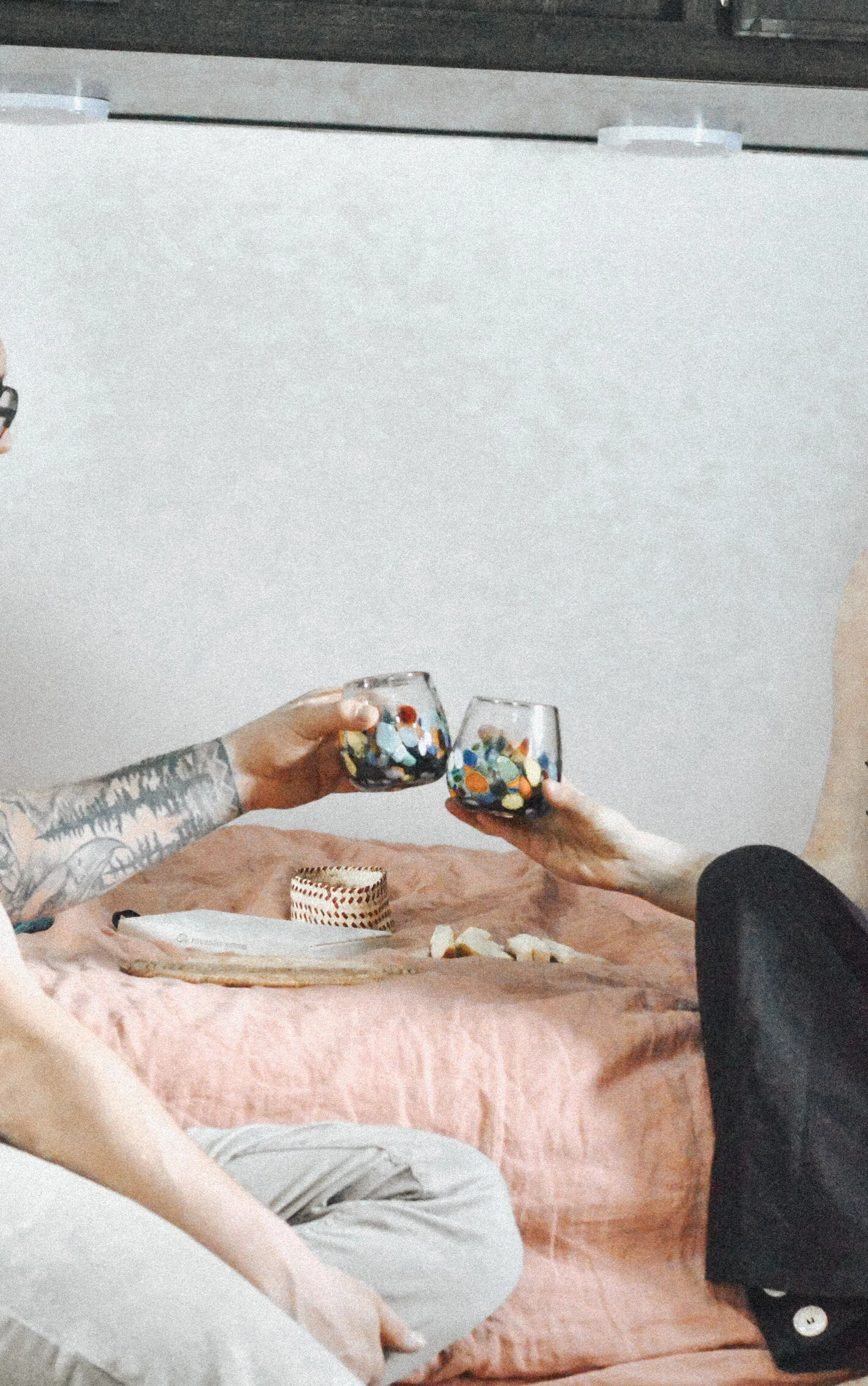An Intro to Sustainability + Wine: Q&A with Local Experts
As promised, I’m so excited to dive into what might be my favorite pairing of all time: sustainability and wine.
I’ll be honest — living in Colorado, digging into the ethics behind wine hasn’t really crossed my mind. Typically, we buy a box of whatever looks like the highest quality for the lowest price, and save our bottles from our Napa Valley trip for very special occasions. It’s all too easy to access craft beer (we have an abundance of local breweries and Colorado is especially over the top in this regard), but great wine isn’t as much of a “thing” here and so I haven’t thought too deeply about it.
But, all this time at home to think — and drink wine — has given me ample space to consider the origins of my favorite non-caffeinated beverage.
I reached out to two local experts that I know personally and did a bit of my own research to answer some common questions about sustainability and ethics within the wine industry.
Wine, it turns out, is just as complex and full of grey area as any other industry like fashion or food. Terms can be ambiguous to label and, although, as we’ll discuss in a bit, wine production and things like soil health and ecological responsibility are very intertwined, there’s also a fair amount of greenwashing that takes place.
This post, I hope, will clarify some common terms you will see while browsing your local wine store and give a bit of guidance on how to shop for wine as ethically and sustainably as possible, whether you live in Italy, Napa Valley, or landlocked Colorado.
I’m realizing as I’m writing that this could easily be divided into multiple parts, but think of this as a general overview and use the “additional resources” section at the bottom to go as deep as you want to from there. I’ve divided it into sections to hopefully make it easy to digest. Scroll to where you want and dive in (with a glass of your favorite Cabernet in hand, I hope).
Common Terms Defined:
Organic/”From organic grapes”: to put it succinctly, “organic” wines are grown without the use of pesticides, chemicals, and (ideally) additional additives to the wine. However, there is a lot of wiggle room within the organic label. For instance, a wine that is labeled as made “from organic grapes” can still contain additives, sugars, dyes, and even sulfites, they just need to contain grapes that were grown organically.
Biodynamic: according to Wine Spectator, biodynamic vineyards take it a step further beyond organic. Biodynamic farming considers the entire “ecosystem” of the land and the produce. Oftentimes, biodynamic farms take astrology and lunar cycles into consideration as well. There is far less interference with the wine and a less strict set of rules for wine-makers to follow. It is essentially Regenerative Agriculture: a “way of farming that emphasizes rebuilding, restoring and supporting the organic matter that composes healthy soils”. (New York Times)
Sustainable: sustainability refers to what a winery is doing to minimize its carbon footprint. Everything from packaging the wine to water usage to farming practices to…essentially, anything that can be done to be kinder to the earth through wine-making.
Vegan: vegan wines, of course, are made without any animal products or byproducts. Typically, this refers to the filtration process. Traditionally, the “fining process” takes place using egg whites (casein), milk, or fish-based products to remove tiny particles from the wine that can’t be removed without it. Vegan wines forego these more traditional methods and use vegetable-based fining agents like pea protein or even bentonite clay, or will simply allow the particles to fall to the bottom of the bottle without any fining. (Decanter) Many wines are vegan-friendly, but current regulations don’t require wineries to report their fining agent on their packaging, so it can be hard to know.
The Big Picture:
As with every area of life (I’m hard pressed to think of one that’s not applicable here…) my friend Shelby, the owner and sommelier behind women-owned local business Adventures Decanted, noted that becoming a ethical and sustainable connoisseur of wine is all about balance.
Rarely, in this world that is so unbalanced, is it possible to shop for anything completely guided by one value set or frame of mind (and if you try, you’ll most likely get overwhelmed and give up). The systems that comprise wine-making, I’m learning, are just as complex as farming our food, but at its root, is a “natural” process that can be done really well, in alignment with and celebration of nature (ie. “managed”), OR it can be manipulated/controlled and result in a product that is unethical, unsustainable, or simply not good. (Thank you to Shelby for that important distinction).
There are many vineyards that grow their grapes organically, pay their employees well (or better yet, operate a family owned/family run business), donate to charities, and seek to use sustainable packaging, reduce their emissions/water usage, etc. But finding one that does all of the above perfectly, just like with a fashion brand, isn’t a reality. Keep all of that in mind moving forward and pick and choose your priorities with the perspective of balance.
Education:
In my chat with Shelby (and something that’s become very clear in my own research), she noted that education is the second piece of the puzzle as consumers move towards more “conscious” wine consumption. She explained that greenwashing is so prevalent in the industry because people just aren’t informed of what certain labels/certifications mean and aren’t aware that, for example, just because a wine was “made with organic grapes” that additives, sulfites, sugars, dyes, etc can all be added after the fact. Or, much like with the coffee industry, a “fair trade” certification doesn’t always mean that farmers down the supply chain are paid a true living wage. A vineyard can employ seasonal workers from Mexico, paying them below a living wage, but use organic farming practices. There is a lot of grey area.
It boils down to slowing down enough to research and educate yourself.
Or, if you don’t have time or are overwhelmed with it all (as I currently am), reach out to a professional or local wine store owner to see if they know more about the vineyard/company you’re considering buying from.
You can research companies on their website as well and don’t be afraid to email them directly for more info on their practices. Once you find a few brands you love and respect, stick with them and support their business over and over.
Bottle vs. Box:
Another hot topic among wine drinkers is the pros and cons of boxed wine versus traditionally (and far more common) bottled wine.
There’s a bit of a stigma around boxed wine that it’s cheap and poor quality; and although that can definitely be true (for both boxed and bottled wines!), a case can certainly be made for the future of the wine industry gravitating towards boxed over bottled.
When I chatted with Jack, the founder of Yoonit Wine, a local, Denver-based company, he was adamant about boxed wines being far better for the planet than bottled. For one, he noted, glass is much heavier to ship (locally or internationally….it’s heavy and expensive) which leads to higher emissions. And although glass is easy to recycle and able to be recycled over and over, the process includes a large amount of furnace emissions, he explained, which is awful for the environment. Since most wine bottles are single use (ie. thrown out or recycled after their first use) and not used over and over, boxed wine is a more eco-friendly alternative that doesn’t alter the wine’s quality at all.
One piece from the New York Times elaborated further, explaining that for some reason, consumers equate better wine with heavier bottles. Which, of course is false and has nothing to do with the quality of the wine. Instead, the piece noted that consumers can support wine makers that are making good wine AND foregoing glass, when possible. Education and destigmatization around this topic will be important moving forward.
These stunning wine glasses and cheese board pieces are from GlobeIn, my favorite resource for artisan made home goods. They sent over their Epicure box for me to use while shooting for this piece.
Practical Takeaways:
Support brands/businesses you trust and love
Buy quality boxed wine when possible or reuse your wine bottles
Local pickup is also a great alternative to shipping bottles from far distances
Support wine makers who farm biodynamically when possible
If you’re unsure of where to start, consider joining your favorite winery’s “wine club” or subscription service. They’ll ship wines directly to you and, if you trust their practices, take out the effort of researching every time you need a bottle. Most companies have something along these lines and it’s one of their biggest revenue streams.
Dry Farm Wines & Primal Wine seem like the most “sustainably minded” subscription services that isn’t tied to a single winery out there that I can find. I''ll update this with the most up to date info I find if I’m proven otherwise.
Similarly, Yoonit Wine out of Denver is one of the only businesses I can find that ships exclusively in Boxes.
Additional Resources/Sources:
https://winefolly.com/tips/beyond-organic-certified-sustainable-wine/
https://www.winespectator.com/articles/whats-the-difference-between-organic-and-biodynamic-wines-5086
https://www.decanter.com/learn/advice/makes-vegan-wine-ask-decanter-406947/
https://www.decanter.com/learn/advice/makes-vegan-wine-ask-decanter-406947/
ec.europa.eu/jrc/sites/jrcsh/files/20160930-macroregional-innovation-penco_en.pdf
Podcast: I’ll Drink to That
Documentary: The Biggest Little Farm
Holly Rose.Eco: My friend Holly is passionate about regenerative agriculture and has dedicated her platform to researching and sharing her knowledge. She sent over some of the resources that informed this blog post.
Wineries I’m admiring right now:
*Thank you to GlobeIn — an ethically curated artisan marketplace — for sponsoring this post. As always, all opinions, research, and images are my own unless otherwise credited. Thank you for supporting the brands that keep this blog running!*






